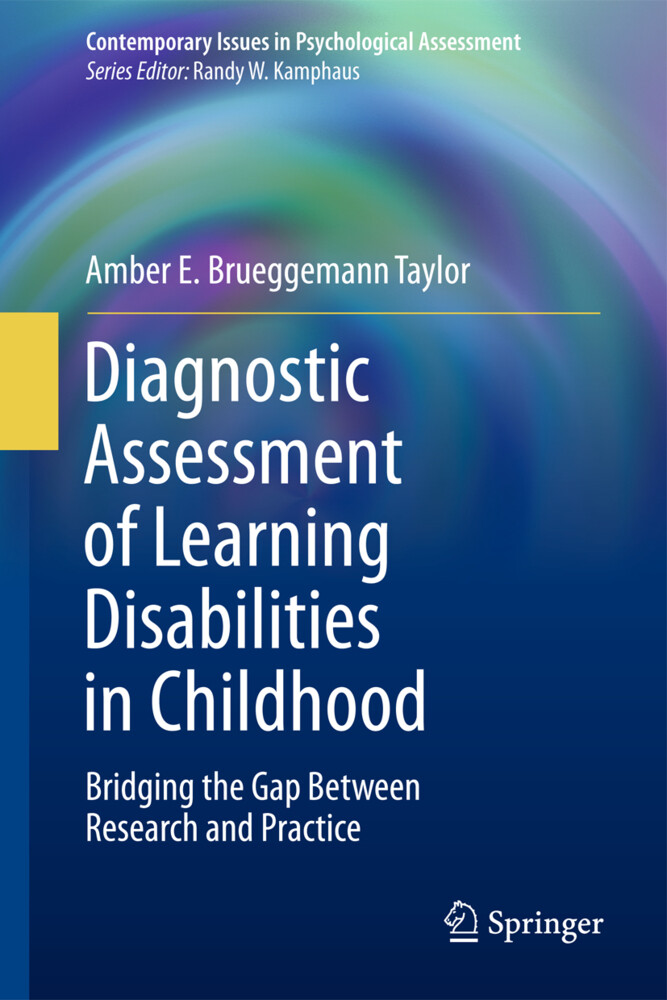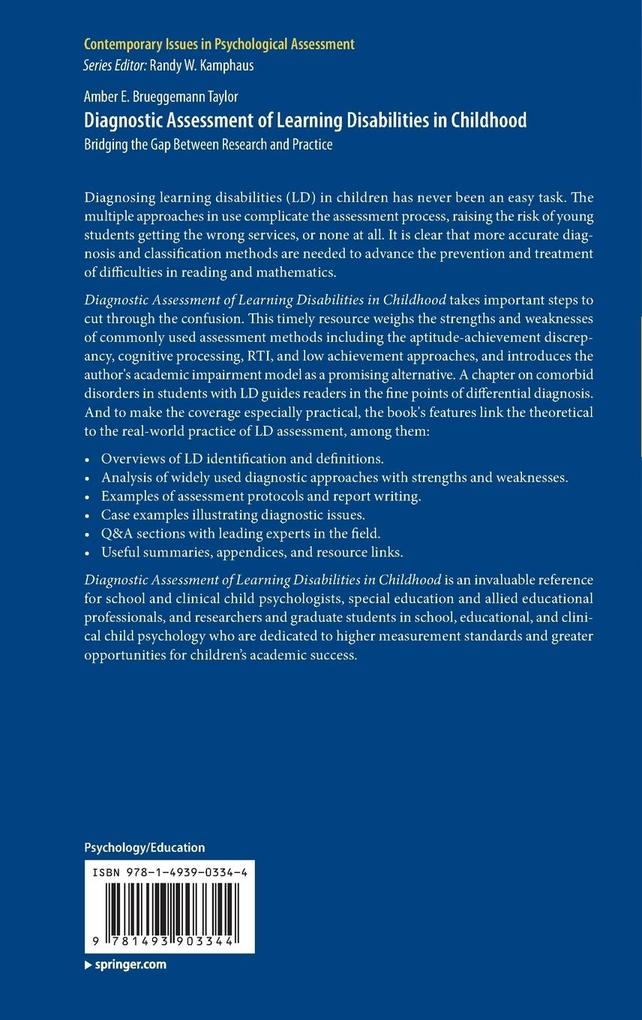
Zustellung: Fr, 25.07. - Di, 29.07.
Versand in 7 Tagen
VersandkostenfreiBestellen & in Filiale abholen:
This book discusses the strengths and weaknesses of widely used diagnostic approaches for learning disabilities, offers examples of assessment protocols and report writing, and case reports illustrating diagnostic issues. Includes Q&As with leading experts.
Diagnosing learning disabilities (LD) in children has never been an easy task. The multiple approaches in use complicate the assessment process, raising the risk of young students getting the wrong services, or none at all. It is clear that more accurate diagnosis and classification methods are needed to advance the prevention and treatment of difficulties in reading and mathematics.
Diagnostic Assessment of Learning Disabilities in Childhood takes important steps to cut through the confusion. This timely resource weighs the strengths and weaknesses of commonly used assessment methods including the aptitude-achievement discrepancy, cognitive processing, RTI and low achievement approaches and introduces the author's academic impairment model as a promising alternative. A chapter on comorbid disorders in students with LD guides readers in the fine points of differential diagnosis. And to make the coverage especially practical, the book's features link the theoretical to the real-world practice of LD assessment, among them:
- Overviews of LD identification and definitions.
- Analysis of widely used diagnostic approaches with strengths and weaknesses.
- Examples of assessment protocols and report writing.
- Case examples illustrating diagnostic issues.
- Q&A sections with leading experts in the field.
- Useful summaries, appendices and resource links.
Diagnostic Assessment of Learning Disabilities in Childhood is an invaluable reference for school and clinical child psychologists, special education and allied educational professionals and researchers and graduate students in school, educational and clinical child psychology who are dedicated to higher measurement standards and greater opportunities for children's academic success.
Inhaltsverzeichnis
1. Introduction/History of Learning Disability Assessment. - 2. Aptitude-Achievement Discrepancy. - 3. Cognitive Processing. - 4. Response to Intervention. - 5. Low Achievement. - 6. Promising Practices. - 7. Comorbidity and Differential Diagnosis. - Appendix A. States Previous Discrepancy Models and Current Identification Models. - Appendix B. States' Response to Intervention Models. - Appendix C. Links to Useful Websites.
Produktdetails
Erscheinungsdatum
15. Februar 2014
Sprache
englisch
Auflage
2014
Seitenanzahl
268
Reihe
Contemporary Issues in Psychological Assessment
Autor/Autorin
Amber E. Brueggemann Taylor
Verlag/Hersteller
Produktart
gebunden
Abbildungen
XIII, 254 p. 26 illus.
Gewicht
571 g
Größe (L/B/H)
241/160/21 mm
ISBN
9781493903344
Entdecken Sie mehr
Pressestimmen
" The chapters are ordered in a logical sequence wherein the reader is introduced to learning disabilities as a distinct and separate field and then gradually provided with more specific research-driven chapters focusing on aptitude achievement discrepancy, cognitive processing, response to intervention, low achievement, and evidenced-based practices. The book concludes with a discussion of comorbidity and differential diagnoses. . . The author does an excellent job of infusing into the text current research and questions being studied now. . .
The book . . . has value for clinicians and scholars who may not directly teach the subject or specialize in assessment but who are likely to come into contact with populations with learning disabilities. "
Victoria A. Comerchero (PsycCRITIQUES, Vol. 59, No. 44, Article 6)
Bewertungen
0 Bewertungen
Es wurden noch keine Bewertungen abgegeben. Schreiben Sie die erste Bewertung zu "Diagnostic Assessment of Learning Disabilities in Childhood" und helfen Sie damit anderen bei der Kaufentscheidung.










